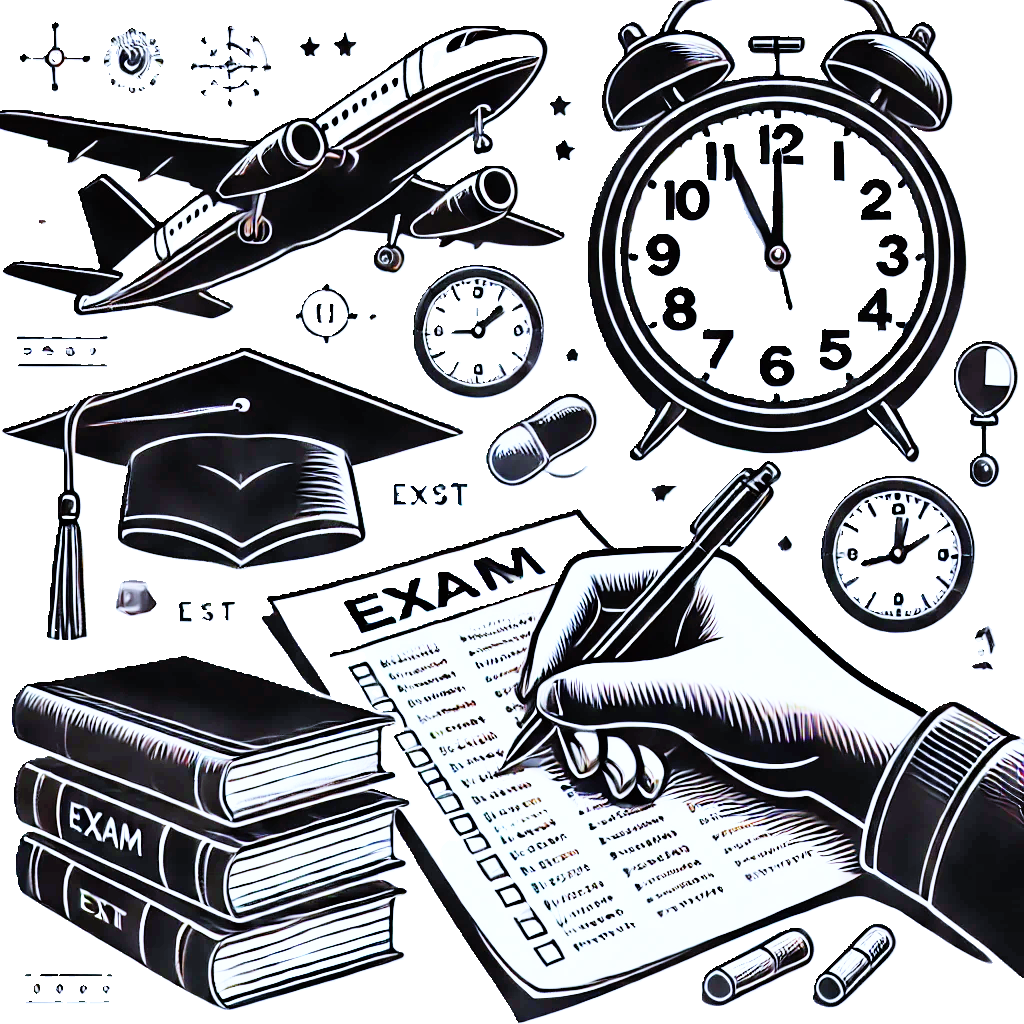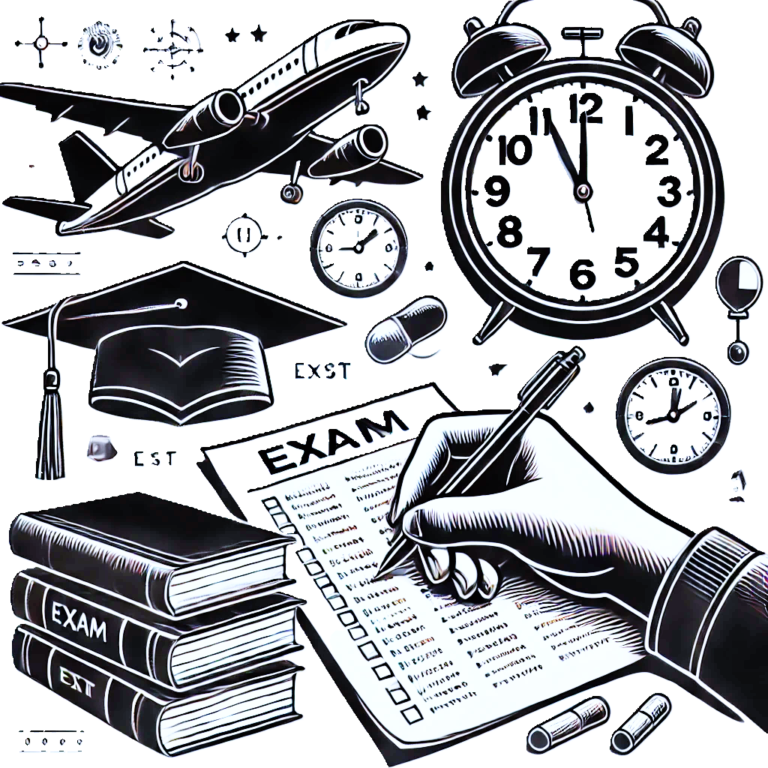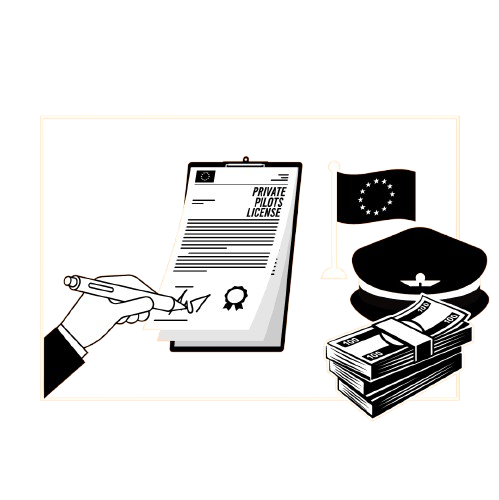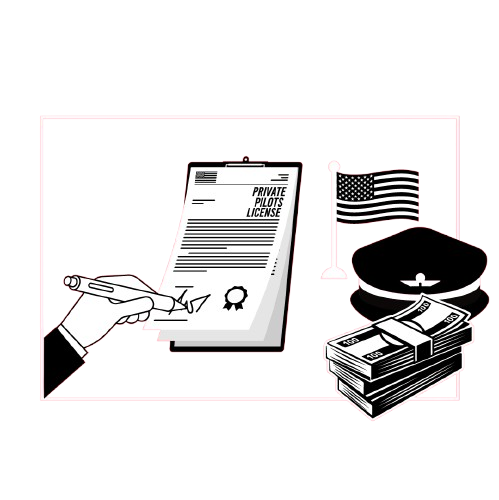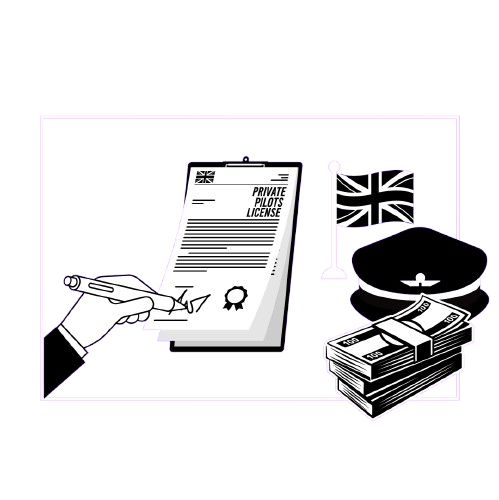- Key Takeaways
- Understanding Boeing 777 Type Rating
- Essential Study Materials
- Mastering the Question Bank
- Effective Study Strategies
- Oral Exam Preparation
- Enhancing Aviation Skills
- Career Advancement in Aviation
- Closing Thoughts
- Frequently Asked Questions
- What is a Boeing 777 Type Rating?
- What study materials are essential for the Boeing 777 Type Rating?
- How can I master the question bank for my Boeing 777 Type Rating exam?
- What are effective study strategies for the Boeing 777 Type Rating?
- How should I prepare for the oral exam in my Boeing 777 Type Rating?
- How can obtaining a Boeing 777 Type Rating enhance my aviation skills?
- Can a Boeing 777 Type Rating advance my career in aviation?
Ever wondered what it takes to ace your Boeing 777 type rating, including mastering airspeed, understanding windows, tackling a sample question, and knowing the correct answer? Navigating the skies of aviation training can seem daunting, but with the right preparation and correct airspeed, cracking those Boeing 777 type rating questions becomes a smooth flight, even through the windows at 45 degrees. This post is your co-pilot, guiding you through the turbulence of study material, offering insights into the critical aspects of the exam, including sample question windows and airspeed answer techniques, and ensuring you’re equipped with the knowledge to soar high in your career. Whether you’re a seasoned aviator looking to expand your qualifications or a budding pilot dreaming of commanding one of the most sophisticated aircraft in the sky, understanding these key points, including airspeed, windows, answer, and degrees, will clear the runway for your success.
Key Takeaways
- Gaining a Boeing 777 type rating involves a comprehensive understanding of the aircraft’s systems, operations, and performance characteristics, which is crucial for pilots looking to advance their careers in aviation.
- Essential study materials include official Boeing manuals, training modules, and supplementary resources that offer in-depth insights into the 777’s functionalities and operating procedures.
- Mastering the question bank is key to passing the type rating exam; focus on understanding the rationale behind each question to improve problem-solving skills under pressure.
- Effective study strategies, such as regular revision sessions, group discussions, and practical simulations, can significantly enhance learning outcomes and exam readiness.
- Oral exam preparation should not be overlooked; being able to articulate technical knowledge verbally is as important as written proficiency, demonstrating a well-rounded understanding of the aircraft.
- Enhancing aviation skills through additional training and real-world experience will not only prepare candidates for the Boeing 777 type rating but also open doors to career advancement opportunities within the aviation industry.
Understanding Boeing 777 Type Rating
Type Rating Essentials
A Boeing 777 type rating is a certification that pilots must obtain to operate this specific aircraft model. It signifies that the pilot has undergone rigorous training and has mastered the necessary skills and knowledge to safely fly the Boeing 777.
The process involves detailed study of the aircraft’s systems, performance parameters including airspeed, and emergency procedures. Pilots learn through theoretical classes, simulator sessions, and actual flight training. This ensures they are well-equipped to handle the Boeing 777 under various conditions.
Training Scope
The scope of systems covered in the type rating exam is extensive. It includes the aircraft’s avionics, engines, fuel systems, electrical systems, and emergency operations among others. Each system’s functionality and integration into the aircraft’s overall operation are thoroughly explored.
Procedures form another critical component of the training. Pilots are taught standard operating procedures (SOPs), cockpit resource management (CRM), and how to respond to abnormal and emergency situations. This comprehensive approach prepares them for real-world flying scenarios.
Question Bank Role
The Boeing 777 Type Rating Question Bank serves as an indispensable tool for pilots preparing for their type rating exam. It comprises a vast collection of potential questions that reflect the depth and breadth of knowledge required to operate the Boeing 777.
Utilising this question bank allows pilots to test their understanding of complex systems and procedures. It also helps identify areas where further study is needed, ensuring a thorough grasp of all aspects of flying the Boeing 777.
Essential Study Materials
Powerplant Module
The Powerplant module covers all aspects of the Boeing 777’s engines. It delves into specifics such as engine start procedures, performance parameters, and troubleshooting techniques. Pilots must understand how to interpret data from the engine indicators and manage engine health during flight.
This section also highlights the importance of emergency procedures related to the powerplant. Knowing how to react in case of an engine failure or fire is crucial for safety.
Flight Controls
Understanding the flight control systems of the Boeing 777 is fundamental. This part of the study material examines primary and secondary flight controls, including elevators, ailerons, and rudders. It explains how pilots use these controls to manage aircraft attitude and stability.
Special attention is given to emergency position scenarios where standard control inputs might not yield expected outcomes. Pilots learn about backup systems designed to maintain control under adverse conditions.
Avionics
The Avionics module provides detailed information on the Boeing 777’s sophisticated electronics systems. Pilots study navigation, communication, and flight management systems integral for modern aviation. This includes GPS technology, autopilot functions, and weather radar operations.
Real-life examples illustrate how avionics support pilots in making informed decisions during critical phases of flight.
Additional Resources
Beyond question banks focusing on powerplant, flight controls, and avionics modules, accessing up-to-date manuals is vital. Manuals specific to airlines or training organisations offer tailored information that complements generic study materials.
For comprehensive preparation, candidates should explore resources covering column forces, floor fittings, and other structural components of the Boeing 777. These elements are essential for understanding aircraft integrity under various operational conditions.
Mastering the Question Bank
Strategy Overview
Navigating through the 400+ questions in the question bank is a daunting task. However, with a strategic approach, candidates can cover all necessary topics efficiently. It’s crucial to start by breaking down the question bank into manageable sections.
Candidates should allocate specific time slots each day to tackle different portions of the bank. This method ensures that every topic receives due attention without overwhelming the learner.
Tracking Progress
The tracking feature within the question bank is an invaluable tool for monitoring progress. It allows candidates to identify areas where they need further review. By keeping a close eye on their performance across various sections, learners can adjust their study plan accordingly.
This feature also highlights strengths and weaknesses in real-time, enabling focused revision on weaker areas. Regular use of this tool ensures comprehensive preparation.
Question Formats
The Boeing 777 type rating question bank offers a variety of question formats, including multiple-choice and scenario-based questions. This diversity prepares candidates for different exam scenarios they may face.
Multiple-choice questions test knowledge on specifics such as maximum brightness settings for windows or case numbers related to trus configurations. Scenario-based questions, on the other hand, assess a candidate’s ability to apply knowledge in practical situations.
Understanding these formats and practicing accordingly can significantly boost confidence levels during the actual exam.
Sample Questions
Engaging with sample questions is essential for understanding how to select the correct answer under exam conditions. These samples often include tricky questions designed to challenge one’s comprehension of the subject matter.
For instance, knowing how to determine the correct case number for specific trus configurations or adjusting windows to maximum brightness under certain conditions are examples of details that might be tested.
Effective Study Strategies
Structured Plan
A structured study plan is essential for mastering the Boeing 777 type rating questions. Pilots should allocate time for regular review sessions, focusing on different aspects of the aircraft’s operations. These sessions can help reinforce knowledge and ensure that all information, especially regarding display units and how they present flight data at various speeds, is well understood.
Practise exams play a crucial role in this process. They simulate the testing environment, allowing pilots to experience the format and pressure of the actual exam. This approach helps identify areas needing improvement, particularly in interpreting display information accurately during flight operations.
Interactive Simulations
Interactive simulations offer a dynamic way to apply theoretical knowledge to real-world scenarios. These tools are particularly beneficial for understanding how to run systems effectively under different flight conditions, including at slow speeds where precise control is paramount. By engaging with simulations included in the question bank, pilots can visualize how display units react in various situations, enhancing their practical skills.
The benefits of these simulations extend beyond individual learning. They provide a solid foundation for group discussions, enabling pilots to share insights and strategies for managing complex systems efficiently.
Study Groups
Forming study groups with fellow pilots or aviation enthusiasts offers several advantages. It facilitates discussion on challenging topics, such as interpreting display units’ information during critical phases of flight or managing systems at low speeds. These discussions can deepen understanding and provide new perspectives on handling specific scenarios.
Moreover, study groups create a supportive environment where members can motivate each other and share resources, such as practise exams or simulation software. This collaborative approach enriches the learning experience and builds a community of learners committed to achieving excellence in their type rating exams.
Oral Exam Preparation
Clear Communication
Practising clear, concise explanations of Boeing 777 systems is crucial. This involves understanding complex procedures and being able to articulate them simply. For instance, explaining the manual start procedure requires a deep grasp of the steps involved and the ability to convey these steps logically.
Candidates should focus on breaking down each system’s operation into understandable segments. Practising this will not only aid in memorising but also in explaining under exam pressure.
Scenario-Based Questions
The oral exam often includes scenario-based questions that test your ability to apply knowledge practically. These scenarios may involve troubleshooting issues or responding to in-flight emergencies. Understanding how to position various controls, such as those for manual start or adjusting flaps to the open position, is vital.
Preparing for these types of questions involves studying the Boeing 777’s question bank thoroughly. Focus on verbalising technical processes and decisions as if you were in an actual flight situation.
Mock Exams
Participating in mock oral exams with instructors or peers can significantly boost confidence. It provides a safe environment to make mistakes and receive feedback.
These sessions should mimic the actual exam environment as closely as possible. They allow candidates to practice articulating their thought process and technical knowledge verbally. Feedback from these sessions is invaluable for identifying areas that need improvement before the actual exam.
Constructive Feedback
Receiving constructive feedback during preparation is essential for improvement. It highlights areas where further study is needed and helps refine communication skills.
Candidates should seek feedback not just on factual accuracy but also on clarity and conciseness of their explanations. This feedback can come from instructors, peers, or through self-assessment after mock exams.
Enhancing Aviation Skills
Continuous Learning
Continuous learning in aviation is not just beneficial; it’s essential. Mastering the Boeing 777 Type Rating Question Bank goes beyond passing exams. It deepens understanding of critical aircraft systems and operational procedures. This knowledge is vital for both safety and efficiency in flight operations.
Pilots can significantly enhance their skills by focusing on areas such as aircraft maintenance and airspeed adjustments at low altitude. These topics are not just theoretical but have practical applications that can improve flight safety and performance.
Advanced Technologies
Staying abreast of the latest advancements in aviation technology is crucial for pilots. The Boeing 777, with its sophisticated systems like the forward equipment bay and dome lights control, represents a leap in airborne innovation. Familiarity with these systems through the Type Rating Question Bank ensures pilots are competent in utilizing modern technologies to their full potential.
Understanding new regulations and technological updates keeps pilots competitive in their field. It also ensures they can operate their aircraft under various conditions, enhancing overall flight safety.
Refresher Tool
For experienced pilots, the question bank serves as an excellent refresher tool. Regular review helps reinforce knowledge of critical systems and procedures specific to the Boeing 777. This practice is invaluable for maintaining high levels of proficiency and preparedness.
Revisiting questions related to type-specific scenarios enables pilots to stay sharp and ready for any situation that may arise during flight. It’s a proactive approach to career longevity and success in aviation.
Career Advancement in Aviation
Type Rating Benefits
Obtaining a Boeing 777 type rating marks a significant milestone for pilots. It not only signifies mastery over the aircraft’s complex systems but also opens doors to prestigious flying positions worldwide. Pilots with this qualification can expect to join the flight deck of one of the most advanced commercial airliners, navigating through skies across the globe.
The journey towards achieving this rating involves rigorous training and examination. Pilots must familiarize themselves with every detail, from the flight deck aisle stand to managing degrees of turn under various weather conditions. Success in these exams reflects a high level of competency, boosting confidence among peers and superiors.
Preparation Strategies
Thorough preparation is key to excelling in the Boeing 777 type rating exam. Utilizing a question bank tailored to this specific aircraft enhances understanding and readiness. This approach ensures that candidates are well-versed in both theoretical knowledge and practical skills required for operating the Boeing 777 efficiently.
Engaging with experienced instructors who provide insights beyond textbooks can make a significant difference. These mentors offer valuable tips on handling real-life scenarios that pilots may encounter while at the controls or navigating through critical phases of flight.
Networking Opportunities
Active participation in aviation communities presents numerous networking opportunities. Through these platforms, aspiring pilots gain access to industry veterans and fellow aviators who share their experiences and guidance. Such interactions can lead to mentorship opportunities, offering a clearer perspective on career paths within the aviation sector.
Exploring different specializations within aviation broadens one’s understanding and appreciation for the field. Whether it’s becoming an instructor, moving into airline management, or specializing in long-haul international flights, each path offers unique challenges and rewards.
Closing Thoughts
Securing a Boeing 777 type rating opens doors to prestigious roles in the aviation industry, marking a significant leap in your career. We’ve guided you through understanding the type rating, gathering essential study materials, mastering the question bank, adopting effective study strategies, preparing for the oral exam, enhancing aviation skills, and finally, how this achievement can propel your career forward. It’s clear that with dedication and the right approach, cracking the type rating is not just a dream but a very achievable reality. Now’s the time to take action. Dive into your studies, utilise these strategies, and set yourself up for success. Remember, every hour you invest brings you closer to that cockpit in a Boeing 777. So, what are you waiting for? Start your journey today and soar high in your aviation career.
Frequently Asked Questions
What is a Boeing 777 Type Rating?
A Boeing 777 Type Rating qualifies pilots to operate the specific aircraft model. It involves comprehensive training on the 777’s systems, handling, and operational procedures.
What study materials, including aircraft maintenance, flight deck aisle stand, and airspeed information, are essential for the Boeing 777 Type Rating to find the correct answer?
Essential study materials include the aircraft’s operating manual, flight crew training manual, and question banks tailored to the Boeing 777.
How can I master the aircraft maintenance and flight deck aisle stand sections of the question bank for my Boeing 777 Type Rating exam, ensuring I select the correct answer for queries related to windows?
Frequent practice and understanding of each question’s underlying principles are key. Utilise simulation software and study groups to reinforce learning.
What are effective study strategies for the Boeing 777 Type Rating, including aircraft maintenance, understanding the flight deck aisle stand, mastering airspeed calculations, and identifying the correct answer?
Effective strategies involve a mix of practical simulations, thorough review of manuals, consistent practice with question banks, and engaging in study groups or forums.
How should I prepare for the oral exam in my Boeing 777 Type Rating by studying sample questions on airspeed, knowing the correct answer, and understanding the number associated with each?
Focus on understanding operational procedures, emergency protocols, and system functions. Practice clear and concise explanations with peers or mentors.
How can obtaining a Boeing 777 Type Rating, with its focus on airspeed, number of windows, and the correct answer to operational procedures, enhance my aviation skills?
It broadens your expertise with advanced avionics and complex systems management, improving overall piloting skills and adaptability across aircraft types.
Can a Boeing 777 Type Rating advance my career in aviation?
Yes, it opens opportunities for roles in major airlines operating the Boeing 777, enhancing employability and potential for career progression.

